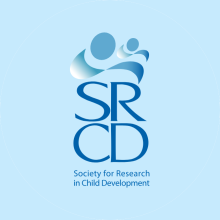November 2011 Spotlight on the SRCD Policy Fellow: Joseph L. Mahoney, Ph.D.
2010-2011 Federal Congressional Policy Fellow
I am a mid-career SRCD Congressional Policy Fellow on leave from my faculty position in the Department of Education at the University of California, Irvine. My research focuses on child and adolescent social-educational development and I have been particularly interested in the role of out-of-school time for the academic, psychosocial, and physical health and development of young people. I have a strong interest in the interface between developmental research and social policy and this motivated me to pursue the SRCD Congressional Policy Fellowship.
My overall goal for this Fellowship is to understand the role of science in policy construction, particularly as it relates to education issues for school-age children. Through the Fellowship experience I hope to be able to make my own work more policy relevant and share what I have learned with my colleagues and students. Some of the basic questions that interest me include: When is science likely to be used in developing education policies? What role does science play in the balancing of competing interests during the policy development process? What kind of scientific evidence is apt to be used most (and least) often? Is policy constructed with attention to implementation and evaluation issues?
I am pleased to be serving as an Education Policy Fellow in the office of Senator Jeff Bingaman. Senator Bingaman is a senior member of the Health, Education, Labor, and Pensions (HELP) Committee and has been influential in shaping the legislation to reauthorize our federal education policy -- the Elementary and Secondary Education Act (ESEA). Now in my second month working in Senator Bingaman’s office, I have already had the opportunity to participate in significant aspects of education policy, including efforts to update the ESEA.
There is widespread agreement that the “one size fits all” approach to our nation’s current education policy – known as the No Child Left Behind (NCLB) Act – has not achieved its intended goals and is long overdue for reauthorization. Last month the Senate HELP Committee marked up and passed out of Committee a bipartisan bill to reauthorize the ESEA by a vote of 15 in favor, 7 opposed. Several of Senator Bingaman’s priorities – incentives to increase the numbers of lowincome students taking Advanced Placement coursework and tests, ensuring schools have funds to adopt needed educational technology in the classroom, increasing Title 1 funding for high schools, provisions to turn around high school “dropout factories” with graduation rates below 60%, expanded learning time to increase the length of the school day, week or year, and health education – are included in this legislation. The next step for this bill would be consideration on the Senate floor.
Prior to the markup, I worked with Senator Bingaman on an amendment to the ESEA reauthorization that concerned the professional development needs of the after-school workforce. This amendment was accepted as part of the base bill. I also attended meetings of the HELP Committee and assisted in staffing Senator Bingaman in meetings in our office, with other members of the HELP Committee, and during the markup itself.
Some of my other projects include working on legislation concerned with the training needs of child protection professionals to identify abused, neglected, and exploited children and supporting STEM education for children in lowincome areas. In addition, I have met with constituents and advocates on a range of education-related issues.
Although I am at an early stage in the Fellowship, my experience has already been remarkable. My knowledge of the policy-making process has grown along with my appreciation for the complexity of decision-making involved in developing viable legislation. I envision returning to my academic position with a much broader network of connections in the policy arena, a stronger understanding of how science interfaces with policy making, in general, and around issues of education and out-of-school time, in particular. Taken together, I should be better able to conduct policy-relevant research and will enjoy communicating what I have learned my students and colleagues.
